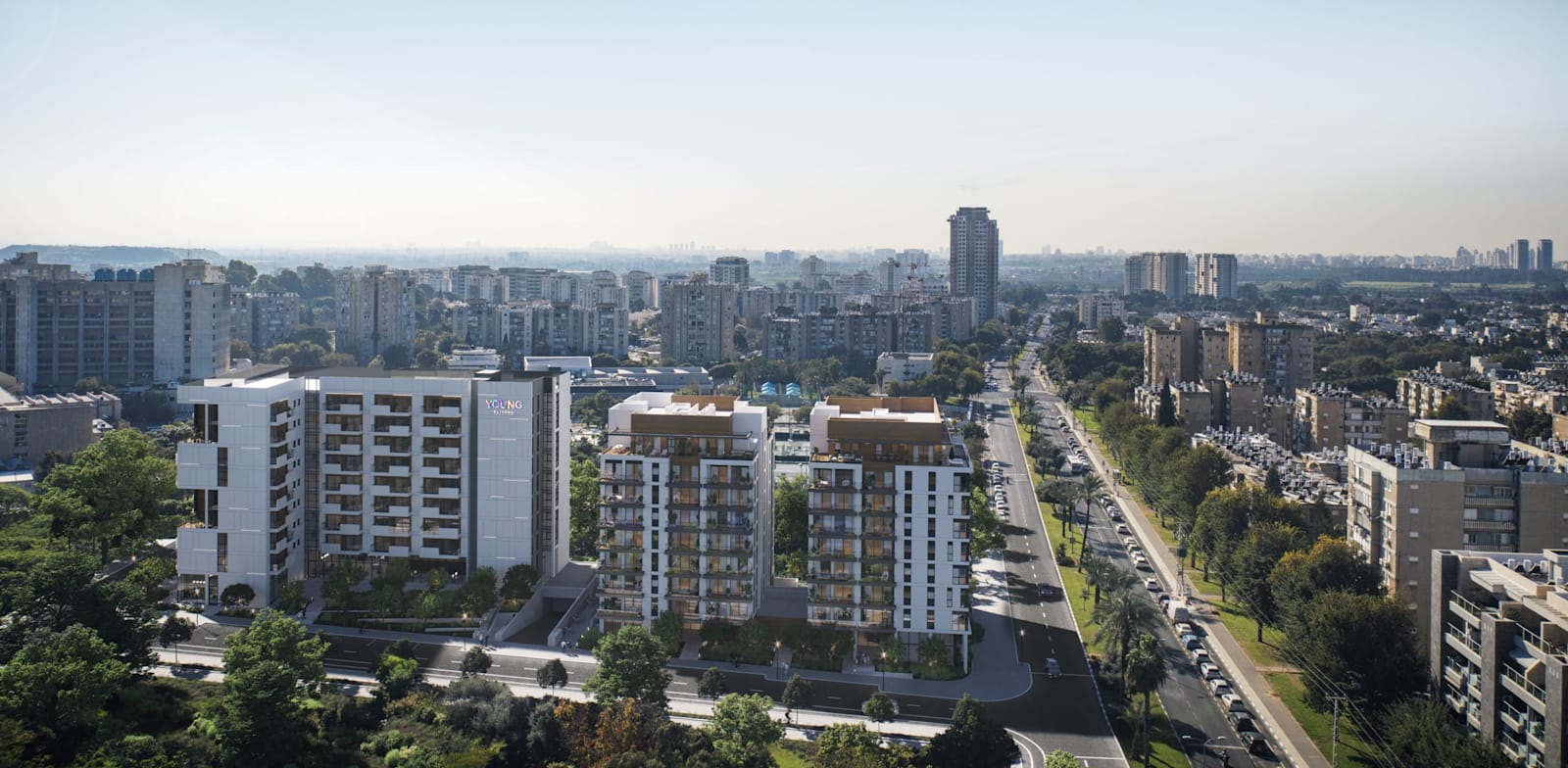In the past three months, on the Tel Aviv Stock Exchange, the Tel Aviv Real Estate Index has fallen 11% and the Tel Aviv Construction Index has fallen 12%. The reason for the declines is apparently investors’ fears of the effect of rising interest rates on the Israel real estate market, particularly on residential real estate.
Figures released by residential real estate developer Prashkovsky (TASE: PRSK), however, indicate that, so far, the global economic storm has not hit the local housing market. In May 2022, Prashkovsky sold 24 apartments for a total of NIS 52.1 million before VAT.
This reflects an average price per apartment of NIS 2.17 million before VAT, or NIS 2.53 million including VAT. Last month was Prashkovsky’s strongest so far this year, both in the number of apartments sold and in the prices it obtained for them. Altogether, Prashkovsky sold 89 apartments in the first five months of 2022, for a total of NIS 189 million.
May this year thus became Prashkovsky’s second strongest month in the twelve months to the end of May for turnover, and the third strongest for number of apartments sold. The strongest month was December 2021, in which the company sold 31 apartments for a total of NIS 63.4 million before VAT.
“People don’t believe that the market will stop”
Prashkovsky Investments and Construction Ltd., controlled by the Prashkovsky family, has a current market cap of NIS 2.5 billion, after a 15% drop in its share price in the past three months. Over the past three years, however, investment in the company has yielded a return, adjusted for dividends, of 266%. For 2021, it posted a net profit of NIS 354 million, nearly 50% more than in 2020, and for the first quarter of 2022 it posted a net profit of NIS 93 million, almost double the profit for the first quarter of 2021.
Company chairperson Yossi Prashkovsky says that the good numbers that the company is reporting indicates that, at least for the time being, no change has been felt in the Israeli residential real estate market in the wake of recent local and global economic developments. “Ultimately, demand is strong, because there’s no supply. There are no apartments, and when there are no apartments and people want to buy, demand stays high, and prices continue to rise. All the reports on the economic situation are having no effect at the moment. Another 0.65% on the Bank of Israel’s interest rate makes no impression on people.”
With the cost of mortgages rising, however, as higher interest rates make the variable rate component of a home loan more expensive, and a 4% annual inflation rate makes the index-linked component more expensive too, while fixed rates are also on the up, and analysts expect the Bank of Israel to continue raising rates, the question arises whether this is really having no effect of the housing market.
RELATED ARTICLES

Tel Aviv home prices rising four-times faster than national average
Prashkovsky says it isn’t. “People don’t believe that the market will stop,” he says. “It’s a fact – people are voting with their feet. The market is thirsty for apartments, and there aren’t any.”
So in your view, we’ll continue to see a strong market in the coming months as well?
“Certainly. Until the market balances itself in terms of supply and demand, we’ll continue to see strong numbers, because there are no apartments. When the government releases more land and thus allows more apartments on the market, things will become easier.”
Prashkovsky is currently marketing five residential projects, in Ramle, Haifa, and Tel Aviv, amounting to 971 apartments in all. So far, 825 of the apartments have been sold, for a total of NIS 1.37 billion.
The company also has 1,402 apartments under construction in projects that it has not yet begun to market. It is also active in income-producing real estate, and is constructing office and commercial buildings, and apartments for long-term rent. It also manages rental homes in the US that it bought in the past.
Yossi Prashkovsky says that he is unable to tell at what levels of interest rates and inflation the market trend will change. According to Leader Capital Markets, inflation over the next twelve months will reach 3.3%, which compares with 4% over the past twelve months, while the Bank of Israel’s interest rate will rise to 2.5% over the next twelve months (from 0.75% today), bringing the prime lending rate to 4%, which compares with 2.25% today.
Investment house Meitav has a slightly different forecast. It sees inflation of 3.6% over the next twelve months, and the Bank of Israel’s interest rate at 2-2.5% in a year’s time.
Published by Globes, Israel business news – en.globes.co.il – on June 7, 2022.
© Copyright of Globes Publisher Itonut (1983) Ltd., 2022.
Stay connected with us on social media platform for instant update click here to join our Twitter, & Facebook
We are now on Telegram. Click here to join our channel (@TechiUpdate) and stay updated with the latest Technology headlines.
For all the latest Business News Click Here
For the latest news and updates, follow us on Google News.
